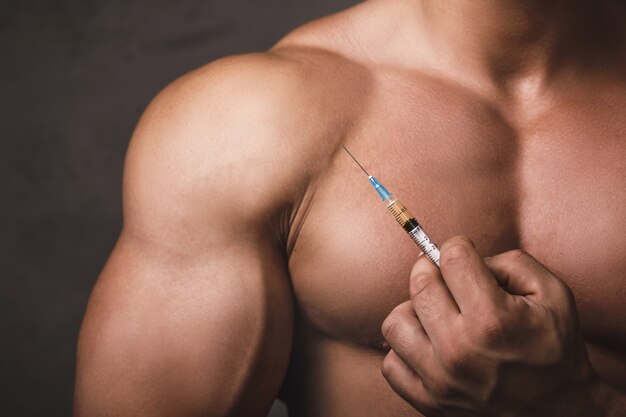
Testosterone Injections: A Gateway to Renewed Vitality
In recent times, there has been a growing trend among middle-aged individuals who are seeking to revitalize their lives and regain the energy and vigor reminiscent of their youth. These individuals are flocking to specialized clinics, often found in South Florida, which promise to reinvigorate them through the use of testosterone, the primary male sex hormone.
The allure of these clinics has been driven by a relentless marketing campaign that includes television commercials, online advertisements, and eye-catching billboards, all inquiring about "Low-T." For many of these individuals, the natural aging process has left them feeling disheartened and longing for the vitality they once enjoyed.
They enthusiastically report that testosterone treatments have had a profound impact, reigniting their endurance and virility. However, it's essential to approach this phenomenon with a balanced perspective. While many have experienced positive outcomes, medical professionals have sounded cautionary notes about potential side effects associated with elevated testosterone levels. It's worth noting that the long-term implications of such treatments are still the subject of ongoing research.
Despite these warnings, individuals like Skip Guarniere, a fitness enthusiast, remain unwavering in their belief that regular testosterone injections have revitalized their lives. Guarniere's personal journey serves as a testament to the potential benefits of testosterone therapy.
Not too long ago, Guarniere found himself grappling with a lack of vitality, sleep disturbances, and chronic fatigue. Concerned about his well-being, he decided to seek help. A visit to a local clinic revealed that his testosterone levels were below the ideal range recommended by medical professionals. Determined to regain his vitality, Guarniere embarked on a treatment plan that included testosterone injections. The results were promising. Within a few weeks, he began to experience improved sleep and a restored sense of energy and well-being.
It's crucial to draw a clear distinction between individuals who undergo testosterone therapy under the careful supervision of medical professionals and those who misuse anabolic steroids, a synthetic form of testosterone that is illegal for non-medical purposes and banned by major sports organizations. While there have been reports of fraudulent clinics supplying banned substances, individuals like Guarniere emphasize that their goal is not to achieve the physique of a bodybuilder but rather to lead normal and healthy lives.
The natural production of testosterone in men typically starts to decline gradually around the age of 40. This decline, often referred to as "andropause," can lead to a range of symptoms, including fatigue, which can be challenging to manage.
Traditionally, concerns about aging and the desire to maintain overall well-being were often associated with women. Women have turned to various strategies, such as plastic surgery, hormone supplements, and fitness routines, to defy the effects of aging. However, as the baby boomer generation ages, there is a growing recognition within the medical and business communities that men also seek solutions to mitigate the impact of aging and lead healthier lives.
A prominent urologist and Chief of Surgery at a reputable medical institution, notes that men are now actively addressing this issue. While his practice primarily focuses on traditional urology, Dr. Manganiotis has observed a rising number of patients inquiring about testosterone injections and topical gels. He points to research indicating that supplementing testosterone poses minimal risks after a man's fertile years have passed, prompting him to offer this treatment to eligible patients after thorough evaluations.
However, it's important to acknowledge that potential risks still exist, including the possibility of stroke, testicular atrophy, and prostate cancer, as highlighted by Dr. Manganiotis. These concerns underscore the importance of undergoing such treatments under the guidance of qualified medical professionals.
When it comes to the financial aspect of testosterone therapy, costs can vary widely. Many clinics charge between $150 to $400 per month for treatment and monitoring. However, it's crucial to remember that costs can be influenced by factors such as location and the specific type of treatment chosen.
In conclusion, testosterone therapy has become an increasingly popular choice for individuals seeking to regain their vitality and combat the effects of aging. While it has yielded positive results for many, it's imperative to be aware of potential risks and consult with qualified medical professionals before embarking on this journey toward renewed energy and well-being. This balanced approach ensures that individuals can make informed decisions about their health and quality of life.



Leave a Comment